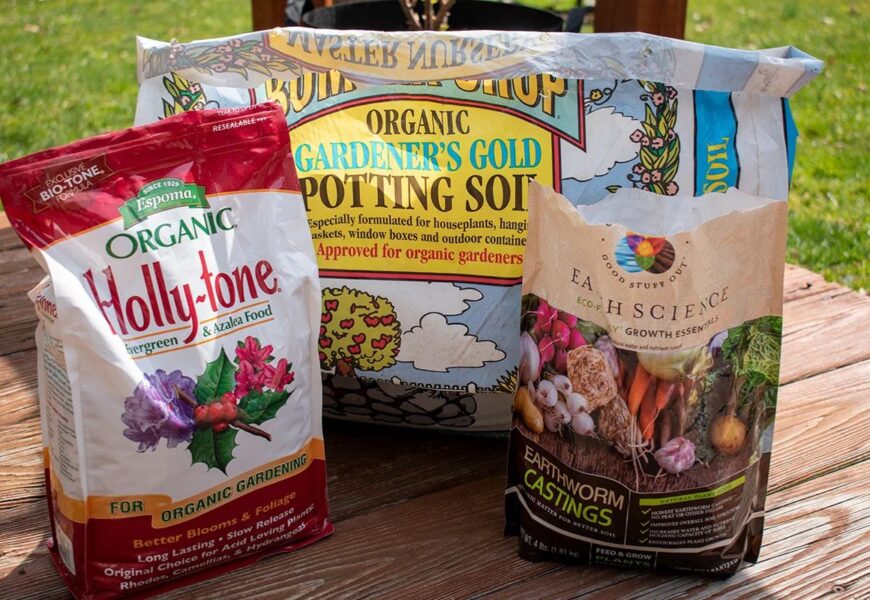Introduction
Choosing the best fertilizers for blueberries can make a significant difference in the health, growth, and beautiful yield of your plants. With proper fertilization, you can ensure stronger bushes, larger berries, and a more productive harvest season. Understanding when, how, and what to feed your blueberries is essential for maximizing their potential. In this guide, we’ll walk you through everything from soil preparation to fertilization techniques, helping your blueberry plants thrive year after year. Read on to discover the secrets to a bountiful blueberry harvest.
Understanding Blueberry Requirements
Blueberries thrive best in acidic, well-draining soils with a pH between 4.5 and 5.5, which allows them to absorb nutrients efficiently. They require full sunlight for at least six to eight hours a day to produce healthy fruit and maintain strong growth. Consistent moisture is essential, but waterlogged soil can harm roots and reduce yield. Understanding the specific climate and seasonal needs of blueberries in your region helps ensure a successful harvest. Providing these optimal conditions from the start creates a strong foundation for fertilization and overall plant health.
Importance of Soil Testing
Soil testing is a crucial first step in growing healthy blueberry plants, as it reveals nutrient levels and pH balance. By understanding your soil’s composition, you can choose the right fertilizers and amendments to meet your plants’ needs. Testing also helps prevent over-fertilization, which can harm roots and reduce fruit quality. Simple home kits or professional lab tests provide accurate insights for effective planning. Regular soil testing ensures that your blueberries receive the nutrients they need for optimal growth and a bountiful harvest.
Nutrient Needs of Blueberries
Blueberries require a balance of essential nutrients to grow strong and produce abundant fruit. Nitrogen promotes healthy leaf and stem growth, while phosphorus and potassium support flowering, fruit development, and overall plant vigor. Micronutrients like iron, magnesium, and zinc are also vital, especially in acidic soils where deficiencies are common. Recognizing the signs of nutrient deficiencies, such as yellowing leaves or poor fruiting, allows timely correction. Providing the right nutrients in the proper amounts ensures healthy plants and a higher-quality blueberry harvest.
Types of Fertilizers for Blueberries
Choosing the right type of fertilizer is essential for supporting blueberry growth and improving harvest quality. Different fertilizers serve specific purposes, from adjusting soil acidity to providing essential nutrients. Understanding these types helps you target the needs of your plants effectively. Common fertilizers for blueberries include:
- Soil Acidifying Fertilizers: Lower soil pH for optimal nutrient uptake.
- Nutrient-Rich Fertilizers: Provide essential macro and micronutrients for growth and fruiting.
- Dual-Action Fertilizers: Combine acidifying and nutrient-rich properties for convenience and balanced care.
Choosing the Right Fertilizer
Choosing the best fertilizers for blueberries depends on soil conditions, plant age, and nutrient needs. A soil test helps identify whether acidifying amendments, additional nutrients, or a combination is required. Young plants may need milder formulations, while mature bushes benefit from nutrient-rich options for fruit development. Using the right fertilizer ensures healthy growth, vibrant foliage, and a better-quality harvest.
When to Fertilize Blueberries
Timing is crucial when fertilizing blueberries to maximize nutrient uptake and fruit production. Early spring fertilization supports new leaf and shoot growth, preparing plants for flowering. A second application in mid to late spring encourages strong fruit development and overall plant vigor. Post-harvest fertilization replenishes nutrients used during the growing season and strengthens plants for the next year. Following a proper fertilization schedule ensures healthier bushes and more abundant, high-quality berries.
How Much Fertilizer to Apply
The amount of fertilizer blueberries need depends on plant age, size, and soil fertility. Young plants require smaller, more frequent doses to encourage steady growth without overwhelming their roots. Mature bushes benefit from higher, well-measured applications to support fruiting and maintain vigor. Over-fertilizing can damage roots and reduce berry quality, so following label recommendations and soil test results is essential. Properly adjusting fertilizer amounts ensures balanced nutrition and maximizes harvest potential.
Fertilization Techniques
Applying fertilizer correctly is key to ensuring blueberries absorb nutrients efficiently. Granular fertilizers can be spread evenly around the root zone, while liquid fertilizers provide quicker nutrient uptake through foliar feeding. Care should be taken to avoid placing fertilizer too close to the crown, which can damage tender roots. Watering after application helps nutrients penetrate the soil and reach the roots effectively. Using the right technique enhances growth, boosts fruit production, and prevents nutrient loss.
Mulching for Better Growth
Mulching is an effective way to retain soil moisture, regulate temperature, and suppress weeds around blueberry plants. Organic materials like pine needles, wood chips, or bark not only improve soil structure but also help maintain the acidic conditions blueberries prefer. A thick layer of mulch reduces water evaporation, keeping roots consistently hydrated. Mulching also slowly adds nutrients to the soil as it decomposes, enhancing plant health. Regularly refreshing the mulch ensures long-term benefits for growth and a more productive harvest.
Preparing to Plant Blueberries
Proper preparation is essential for planting healthy blueberry bushes that produce abundant fruit. Start by testing the soil to check pH and nutrient levels, making amendments like sulfur or peat moss if necessary. Ericaceous fertilizer is necessary for blueberries to maintain the correct acidic soil pH, which is vital for nutrient absorption.Clear the area of weeds and incorporate well-draining organic matter to improve soil structure. Applying a base layer of fertilizer ensures young plants have access to essential nutrients from the start. Thoughtful preparation sets the foundation for strong growth, vibrant foliage, and a successful harvest season.
Selecting and Planting Blueberries
Choosing the right blueberry variety for your region is key to ensuring healthy growth and a fruitful harvest. Look for plants that are disease-resistant, suited to your climate, and match your soil conditions. When planting, select a sunny location with well-draining soil to promote strong root development and maximum fruiting. Proper spacing and staking provide support as bushes grow and prevent overcrowding. Following these steps ensures your blueberry plants establish quickly and thrive for many productive seasons.
Caring for Young Blueberry Plants
Young blueberry plants need consistent care to establish strong roots and healthy growth. Regular watering keeps the soil evenly moist, while avoiding waterlogging that can damage delicate roots. Light fertilization provides essential nutrients to support early leaf and stem development. Mulching around the base helps retain moisture, regulate soil temperature, and suppress weeds. With proper care during their first years, young plants develop a solid foundation for future flowering and fruiting.
Maintaining Healthy Blueberry Bushes
Maintaining blueberry bushes involves regular pruning, weeding, and monitoring for plant health to ensure consistent growth and fruit production. Pruning removes dead or weak branches, encourages airflow, and stimulates new growth. Keeping the area around bushes free of weeds reduces competition for nutrients and water. Monitoring nutrient levels and addressing deficiencies early helps prevent stunted growth or poor fruiting. Consistent care throughout the growing season promotes vigorous plants and maximizes harvest quality.
Managing Pests and Diseases
Blueberry plants are vulnerable to pests, wildlife, and diseases that can lower yield if not managed properly. Using the best fertilizers for blueberries helps strengthen plants, making them more resilient to stress and infestations. Regular monitoring and timely interventions with organic or chemical controls prevent damage. Proper spacing, barriers, and sanitation further protect plants and ensure a healthy, productive harvest.
Recognizing and Correcting Nutrient Deficiencies
Identifying nutrient deficiencies early is vital for maintaining healthy blueberry plants and maximizing fruit production. Symptoms like yellowing leaves, poor growth, or small, pale berries often indicate a lack of nitrogen, iron, or other essential nutrients. Soil testing helps pinpoint which nutrients are deficient and guides corrective fertilization. Applying the right type and amount of fertilizer restores balance and supports vigorous growth. Timely intervention prevents long-term damage and ensures your blueberry bushes remain productive and healthy.
Harvesting and Post-Harvest Care
Harvest blueberries when they are fully ripe, usually indicated by a deep blue color and a slight softness to the touch. Picking regularly encourages continued fruit production and prevents overripe berries from attracting pests. Handle berries gently to avoid bruising, and store them in a cool, dry place to maintain freshness. Blueberries can also be frozen to preserve flavor and nutrients for long-term use. Proper harvesting and post-harvest care ensure maximum yield and high-quality fruit for consumption or sale.
Optimizing Fertilizer Results
Using the best fertilizers for blueberries ensures plants receive essential nutrients for healthy growth and abundant fruit. Matching fertilizer applications with growth stages maximizes nutrient uptake and efficiency. Regular soil testing helps adjust type and quantity, preventing over- or under-feeding. Proper application techniques and watering allow nutrients to reach the roots effectively. Optimizing fertilization promotes stronger berries plants, higher yields, and a more bountiful harvest.
Conclusion
Choosing the best fertilizers for blueberries is essential for promoting healthy growth and a bountiful harvest. By understanding soil conditions, nutrient needs, and proper fertilization techniques, you can maximize plant health and fruit quality. Consistent care, timely applications, and mulching further enhance growth and yield. Monitoring for pests, diseases, and nutrient deficiencies ensures your bushes remain productive year after year. Following these practices will help you enjoy strong, vibrant plants and a plentiful blueberry harvest.









